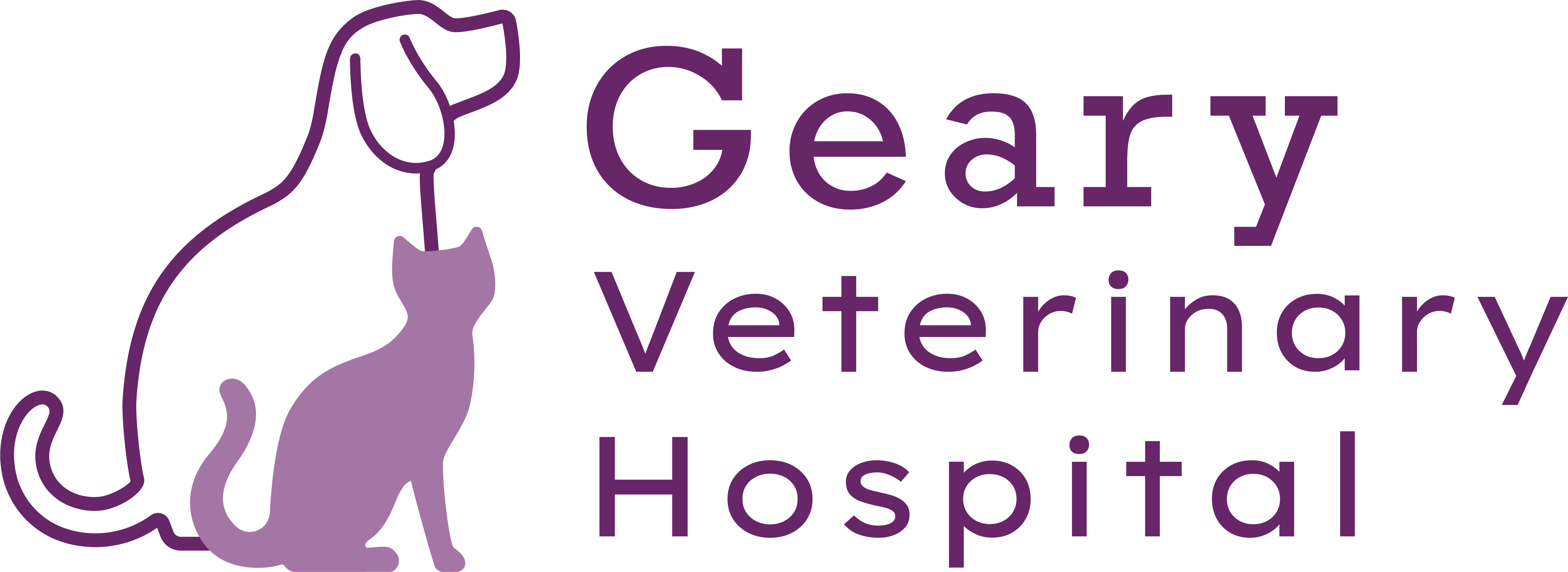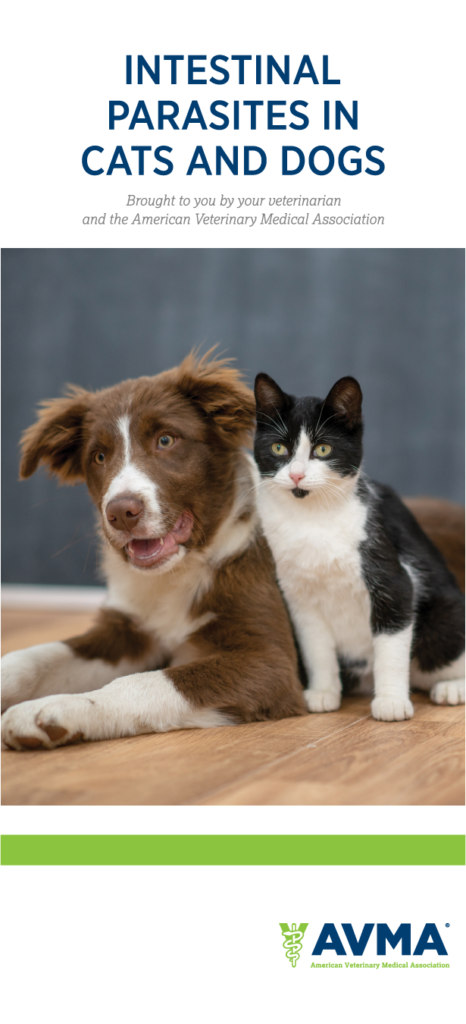
Congratulations on your new puppy! We’re excited to be a part of keeping your puppy healthy and safe, now and as the years go on. Below is information Geary offers during your new puppy visit.
Fecal Exam
The fecal exam tests for parasites and intestinal worms often seen in puppies. The results take about 24-48 hours. If the results are positive for intestinal parasites, a Geary doctor or staff member will call you and have you pick up a prescription. If the results are negative, a member of our staff will email you the results. The most common parasites we see in puppies include giardia, coccidia, and roundworms. Read more about intestinal parasites commonly found in dogs and cats!
The picture below is a .pdf link to the AVMA Intestinal Parasites handout we give you at your puppy visit!
Vaccinations
A puppy receives maternal antibodies through the mother’s milk. As the puppy ages, the maternal antibodies wane until they are almost gone around 16 weeks of age. Vaccines help to boost the immune system as these antibodies wane, so your puppy is protected after the maternal antibodies are gone. Vaccines are a crucial part of maintaining your puppy’s health.
We recommend that all puppies receive vaccines to prevent illnesses such as Distemper, Parvovirus, Parainfluenza, Hepatitis, Leptospirosis, Bordetella, and Rabies. We will also discuss the Canine Influenza vaccine at your visit to determine if your puppy should be vaccinated for this disease. The DA2PP (or DHPP), Leptospirosis, and Canine Influenza vaccines all require boosters. At your puppy appointment, your veterinarian will create a vaccine schedule to follow for your puppy. Our staff can then book those appointments before you leave that day.
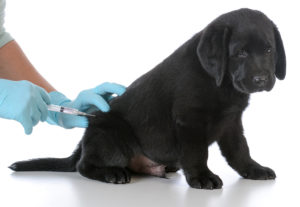
DA2PP or DHPP
(Distemper, Hepatitis, Parainfluenza, and Parvovirus)
is a common vaccine for all dogs to prevent those illnesses. Canine Distemper is a contagious, and potentially fatal, viral disease that affects the respiratory, gastrointestinal, and central nervous systems. Other animals including skunks and raccoons can be infected with the Distemper virus and may then infect dogs. Adenovirus has two viral strains–one that affects the respiratory tract, and one that affects the liver causing Hepatitis. Adenovirus can spread from dog to dog through respiratory secretions or through contaminated feces or urine. Parvovirus is a highly contagious and serious disease caused by a virus that attacks the gastrointestinal tract of puppies and dogs. This virus causes vomiting and diarrhea (often bloody diarrhea) and can be fatal.
The DA2PP vaccine is started around 6-8 weeks of age and must be boostered every 3-4 weeks until 16 weeks of age. The next booster is at one year and then every three years thereafter.
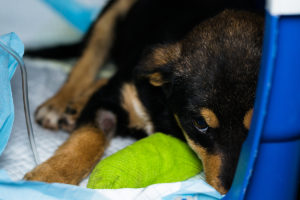
Bordetella
The Bordetella vaccine is designed to prevent the spread of the common cold in dogs, also known as kennel cough or canine infectious respiratory disease. Bordetella is a bacterial infection and very contagious, but it’s only one cause of upper-respiratory disease in dogs. The Bordetella vaccine protects against this strain of bacteria; however, it’s important to know that there are many viruses and bacteria that can cause the common cold in dogs, like in humans, and will have a similar clinical presentation.
The Bordetella vaccine is typically given at the first puppy visit. It is boostered yearly based on potential exposure (e.g., if your dog goes to dog parks, interacts with a lot of other dogs on walks, attends doggie daycare, or is boarded when you go on vacation).

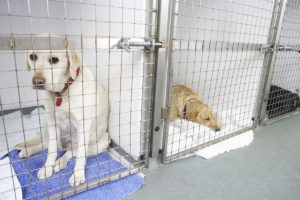
Canine Influenza
Canine Influenza is new to California, with several outbreaks recorded in Northern California in the last several years. We recommend the Canine Influenza vaccine based on potential exposure (e.g., if your dog goes to dog parks, interacts with a lot of other dogs on walks, attends doggie daycare, or is boarded when you go on vacation). Note that most boarding facilities require this vaccination before boarding your dog and will ask you for proof of vaccine.
The Canine Influenza vaccine is given at 12 weeks and boostered at 16 weeks. It is then given yearly thereafter.
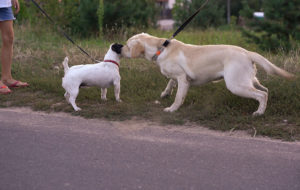
Leptospirosis
Leptospirosis is a blood infection caused by the bacteria Leptospira, often found in urine from wildlife. More cases are seen in California in the late fall through early spring, often after heavy rainfall. We follow the UC Davis recommendations, which consider the Leptospirosis vaccine essential for all dogs. Leptospirosis is considered a zoonotic disease, meaning it can spread to humans.
The Leptospirosis vaccine is given at 12 weeks and boostered at 16 weeks. It is then given yearly thereafter.
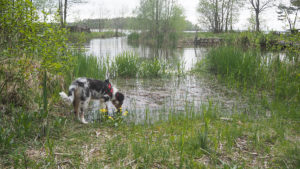
Rabies
Rabies is a deadly virus, usually spread through an animal bite. The virus spreads through the saliva of infected animals and can pass to humans – making it a zoonotic disease. Contra Costa County requires all pets to be vaccinated against rabies. It is our policy at Geary Veterinary Hospital that we will only treat pets who have current rabies vaccinations. Pet owners must have proof that rabies vaccines have been completed, so be sure to keep your paperwork and the metal tag we send home with you.
The Rabies vaccine is given at 16 weeks of age and is good for one year. At one year of age, a booster will be given, then the rabies vaccine is given every three years thereafter.


Socialization and Walks
Between 8-16 weeks is the most critical socialization period for dogs—both with other dogs and with people. We recommend that your puppy gets handled by at least 100 people! Puppy classes are a good training option, even if your puppy is not fully vaccinated. But only take a puppy class if you’re sure the other dogs have been seen by a vet and have received some of their vaccines. Your puppy can interact with any vaccinated dogs (like those belonging to friends and family members, for example). Avoid taking your puppy to dog parks and pet-supply stores because you won’t know which dogs have been vaccinated. It is ideal that your puppy finishes all vaccines—usually by 16 weeks of age—before going for walks outside. Going potty in your backyard is fine.



At Geary, we tell clients to avoid walking puppies outdoors until after the Parvovirus vaccine has been given. (Yes, you can still take your puppy outside for a quick pee in your yard!) The reason we give this advice is that Parvovirus is hardy, and it can live in its environment—such as on grass and sidewalks—for several months. This virus can be deadly to your puppy, often requiring supportive care in an emergency hospital.

Spaying/Neutering
At Geary, we typically spay/neuter dogs at around 6 months of age. If you have questions about waiting longer, please discuss them with one of our veterinarians. At the time of the surgical procedure, your puppy will be microchipped, if that has not already been done. Our staff will discuss what to expect on the day of the procedure when we schedule the surgery with you. After the surgery has been completed, we will provide you with information needed to care for your puppy at home.

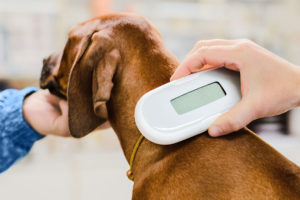
Heartworm Test
In Contra Costa County, 1 in 500 dogs tested positive for Heartworm in 2022. Although this is not a large amount, the number of positive tests is slowly increasing. Additionally, there are other counties in California (where you may travel with your dog) that have a much higher incidence. In 2021, we diagnosed two dogs at Geary with Heartworm disease.
Heartworm is spread by mosquitoes. The common misconception about Heartworm is that if your dog spends more time indoors, then their risk of this disease is lower than dogs who hike or play outdoors. Not true! Remember that mosquitoes can get inside the house, infecting your pets. You may not even realize your dog has been bitten because the mosquito will fly away, unlike fleas and ticks that remain visible on the skin.

At Geary, we highly recommend heartworm prevention for your dog. The medications for prevention have been around for over 30 years and have been tested to be safe.
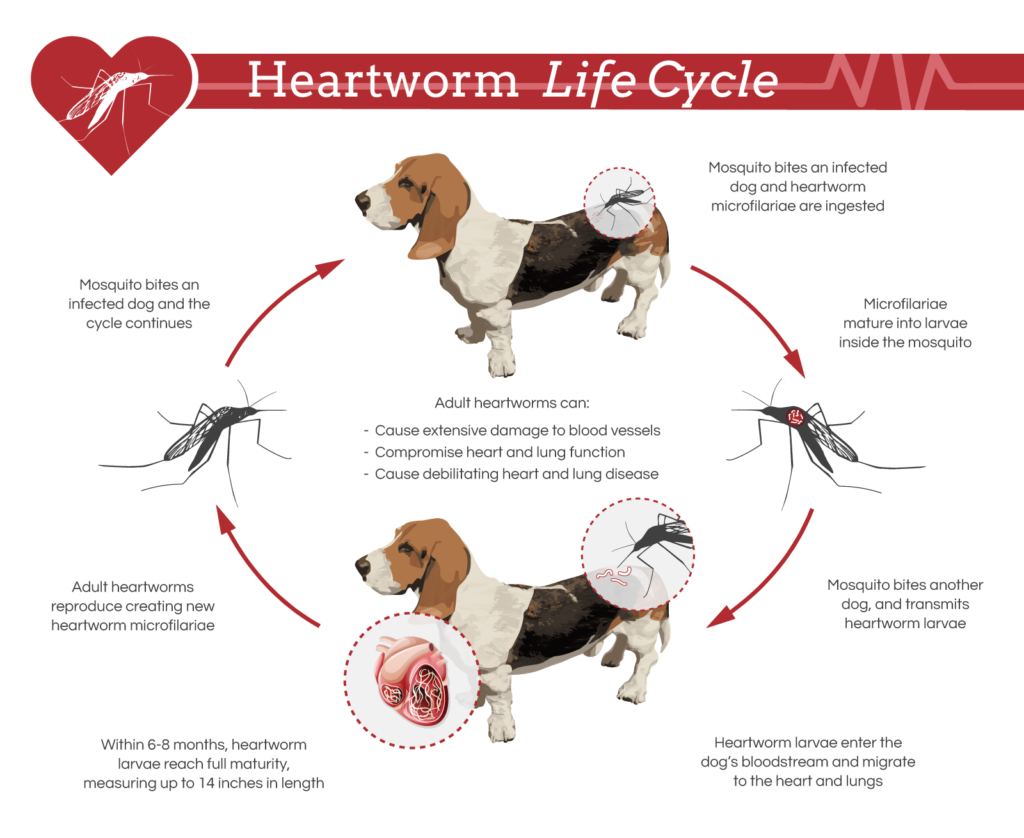
Feeding Your Puppy
The brands of food we recommend for your puppy include the top main brands: Purina, Royal Canin, Eukanuba, Iams, and Science Diet/Hills. These companies have been around for decades and put their money into the scientific testing of pet foods, whereas many newer and smaller companies put their focus on food marketing rather than science. We recommend feeding your dog puppy food until one year of age. Some foods are labeled “All Stages.” We don’t encourage purchasing these foods, as we know that the energy and nutrition requirements for a puppy are much different than what is needed for an adult dog.
One question we often get asked is, “How much should I feed my puppy?” It’s important to feed your puppy according to its age and weight, so we’ll need more information from you before we can give you the proper answer. We’ll also need to know which brand of puppy food–and whether you’re feeding wet or dry food–because the calorie content for each serving will need to be calculated. Read the measurement chart on the back of the bag/can for the specific age and weight of your puppy, and the recommended servings per day.

Training
Training is a very important part of caring for your puppy. We highly recommend:
Sirius Dog Training
When you’re serious about canine training; located in Durham, NC
– or –
Tailored Dog Training
Offering classes on learning how to properly train your puppy; located in Concord, CA


Pet Insurance
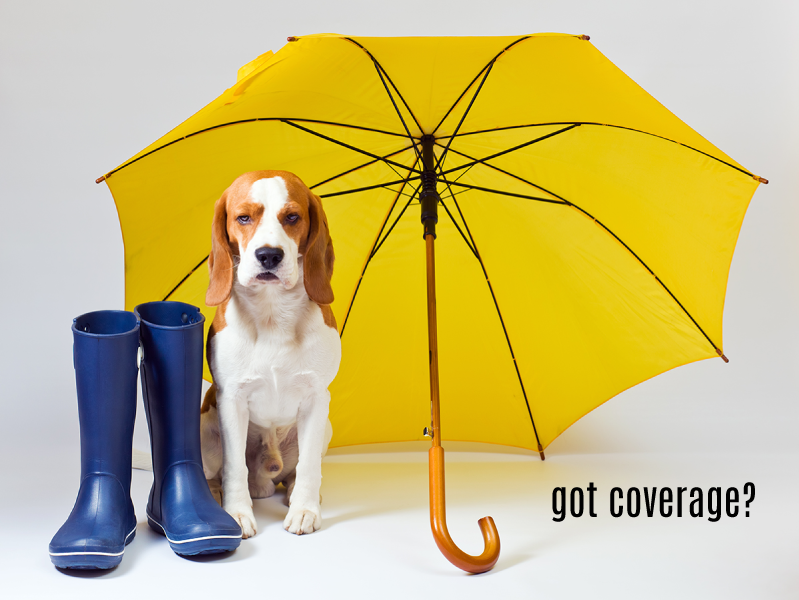
Please consider getting pet insurance for your puppy! We have countless stories at Geary where a client waited too long to sign up or decided not to get insurance, and then ended up paying thousands of dollars in veterinary bills when their pets had an emergency.

Because pet insurance companies do not cover pre-existing conditions, it’s important to get a policy when your puppy is young and healthy. Look online for the many pet insurance companies to choose from. We currently recommend:
Trupanion
ASPCA
Nationwide
These companies have been around for many years, and our clients have given us positive feedback about their costs and services.
If you choose not to get pet insurance, we encourage you to put money into a savings account for future veterinary care. Why? You never know when your beloved pet might get injured or ill and need urgent care. Local emergency and specialty hospitals report that their costs range from $2,000-4,000 per night for overnight hospitalization and $8,000-$10,000 for major surgery. If you’ve saved ahead of time, you’ll have a clearer sense of your options and can focus on your pet’s health and recovery.

